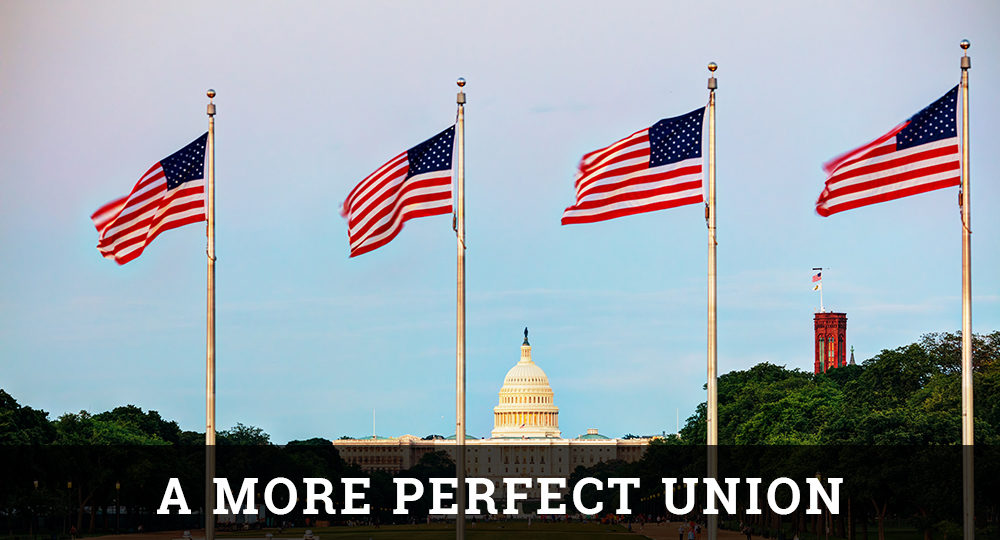Being Right in a Rough World
When the news first broke that Osama bin Laden had been killed in Pakistan, television captured images of college students celebrating in Washington, DC, and National Public Radio gave unenlightened coverage of the opinions of American youth—all of whom were mere children when the September 11, 2001, terror attacks he masterminded occurred.
Politicians rushed to the cameras; CNBC asked, “Should bin Laden Have Been Taken Alive?”; and congressmen offered their reflections.
However, Christendom’s reaction was the most interesting. On more than one Christian radio program, hosts grappled with how to respond to the shooting death of a heartless terrorist. Some were particularly concerned about avoiding any appearance of satisfaction or glee, although I note that the Israelites danced in the streets when David killed Goliath (1 Sam. 18:6). Since it appears that bin Laden was unarmed, Rowan Williams, archbishop of Canterbury, declared he was “uncomfortable” with the circumstances surrounding the terrorist’s death.
I don’t think the ethics of war require that your enemy always be fully able to defend himself before he can be dispatched. Resourceful Jael killed an enemy general by luring him into her tent to rest and then drove a tent peg through his head while he slept (Jud. 4:17–22).
Two questions are implicit in the U.S. military operation in Pakistan: (1) Was it legal to kill bin Laden? (2) Can Christians ethically support the U.S. government’s deliberate targeting of individuals for death?
Although several U.S. presidents issued executive orders prohibiting political assassinations, the orders did not define assassination. Furthermore, those orders certainly did not apply to war-related activities pursued for national defense. Law Professor Robert F. Turner, cofounder of the University of Virginia’s Center for National Security Law, has opined that the shooting was clearly legal, comparing it to the intentional downing in 1943 during World War II of a transport aircraft carrying Japanese Admiral Isoroku Yamamoto, the mastermind of the attack on Pearl Harbor.
Regarding the second question, Christians who urge pacifism by citing Jesus’ commandments about peace (i.e., Mt. 5:9) miss the point. They fail to recognize the theological distinctions between individual responsibility to seek peace with others (Rom. 12:18) and the corporate responsibility of government to use lethal force (the “sword,” Rom. 13:1–7) to protect citizens from “evildoers” (1 Pet. 2:13–14).
Osama bin Laden was a perfect example of an evildoer who planned to continue his reign of terror. The dozens of agents and special operations forces that meticulously tracked and killed him were pursuing a lawful, if astonishingly dangerous, mission that was ethically consistent with the Bible’s view of the role of government. In all of the New Testament references to soldiers and Roman centurions, there is no suggestion that their work, which often involved using force and violence against others, was somehow sinful or inappropriate.
The news media’s microscopic examination of the bin Laden operation raised questions about whether he was armed, whether he tried to surrender, and the extent of the “fire fight” that ensued just before he was shot. Those are common questions in civilian settings when, for instance, a police officer fatally shoots a suspect. People ask whether the officer responded with excessive force.
But it is wrongheaded to apply this highly refined legal and moral analysis to armed-combat situations. While the Christian theory of the “just war,” begun with Augustine (A.D. 354–430), lists “proportionality” of force as a factor to be weighed, it is absurd to believe the theory should be applied with the same degree to military operations.
There are geopolitical aspects to this issue as well. The International Criminal Court says it has authority to enforce its war-crimes code against any military officer who uses excessive and disproportionate force during a combat offensive. That particular section has yet to be tested. However, we live in a global atmosphere of anti-American sentiment, and someday our brave soldiers in the field may face the prospect of UN war-crimes charges for trying to protect us.
In the end, Christians should not evaluate the bin Laden affair based on global theories of justice or the liberal leanings of the press or the opinions of a culture too often misinformed by Hollywood’s constant depiction of the American military as sinister. Rather, our worldview should be shaped, informed, and instructed by God’s Word applied in a thoughtful way to world events.
For me, the killing of Osama bin Laden not only was necessary, it was right.







